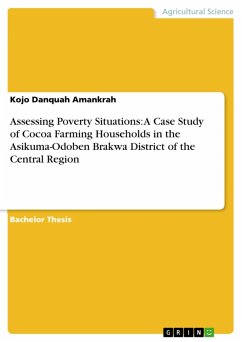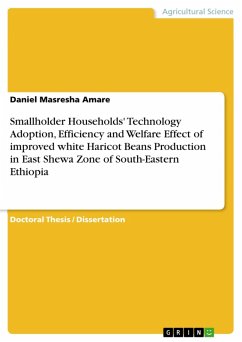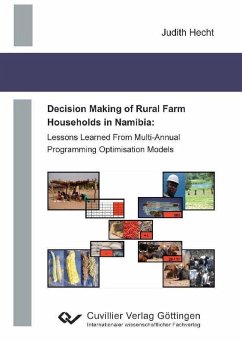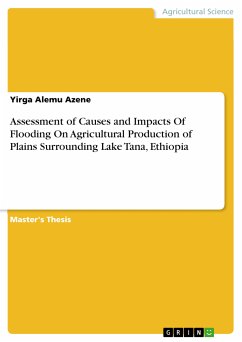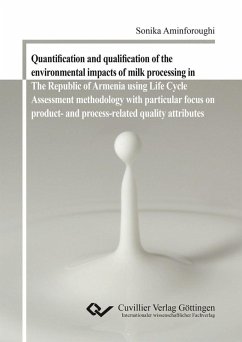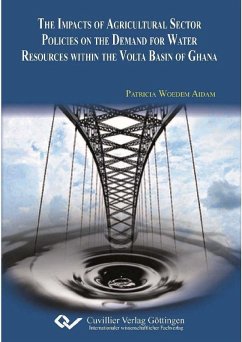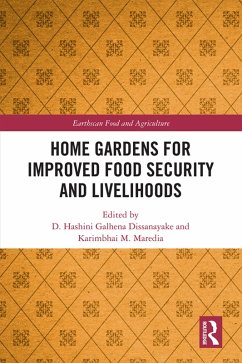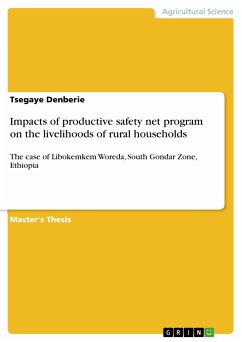
Impacts of productive safety net program on the livelihoods of rural households (eBook, PDF)
The case of Libokemkem Woreda, South Gondar Zone, Ethiopia
Sofort per Download lieferbar
19,99 €
inkl. MwSt.

PAYBACK Punkte
0 °P sammeln!
Master's Thesis from the year 2018 in the subject Agrarian Studies, grade: B+, University of Gondar (Collage of Agriculture and rural Transformation), course: Agricultural Economics, language: English, abstract: This study evaluated the impact of productive safety net program on the livelihood of rural households of Libo Kemkem woreda. Towards this end, data were collected from 210 randomly selected households of which 119 were program participants and 91 were non-program participant's selected from four Kebeles of the woreda, where the productive safety net program was implemented. Data were ...
Master's Thesis from the year 2018 in the subject Agrarian Studies, grade: B+, University of Gondar (Collage of Agriculture and rural Transformation), course: Agricultural Economics, language: English, abstract: This study evaluated the impact of productive safety net program on the livelihood of rural households of Libo Kemkem woreda. Towards this end, data were collected from 210 randomly selected households of which 119 were program participants and 91 were non-program participant's selected from four Kebeles of the woreda, where the productive safety net program was implemented. Data were analyzed using descriptive statistics and econometric analysis. Results from descriptive statistics revealed that among program participants and non participants, the total annual income has increased averagely by 14467.2 birr and 11469.2 birr. The average livestock holding was 3.7230 TLU and 1.4878 TLU for participant and non-participant households, respectively. Thus, the program enables them to through avoidance of forced disposal in response to shock (increase) their livestock holdings. Applying a propensity score matching technique, it was found that the program has significantly increased participating households' total income by 59.1%, livestock asset by 14.09% and consumption expenditure by 22.61% compared to non-participating households. The estimated results also revealed that, households in the program has better access to credit, small land size and better access on agricultural extension, access to aid and less access to irrigation. Finally, physical and biological conservation measures should be widely incorporated, access to extension service for the utilization of new technologies and for policy concern. Generally both households increase their livelihood activities respectively interms of livelihood.
Dieser Download kann aus rechtlichen Gründen nur mit Rechnungsadresse in A, B, BG, CY, CZ, D, DK, EW, E, FIN, F, GR, HR, H, IRL, I, LT, L, LR, M, NL, PL, P, R, S, SLO, SK ausgeliefert werden.




